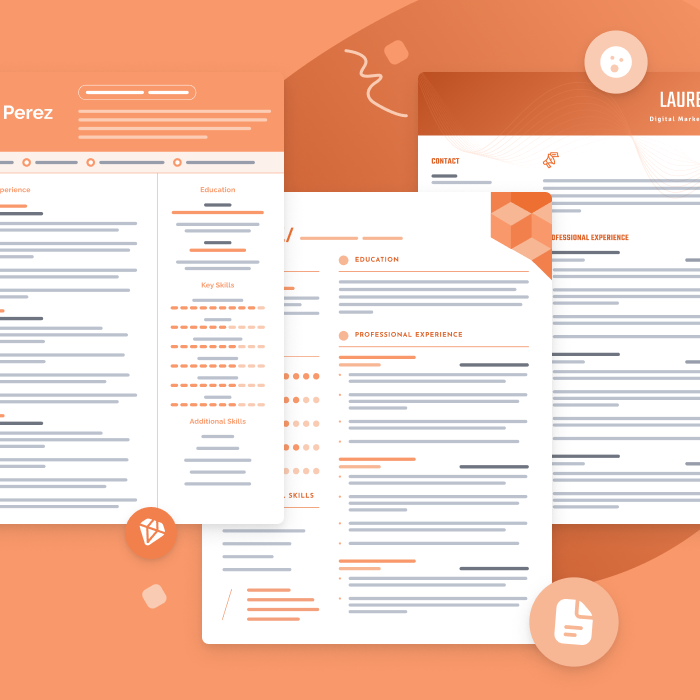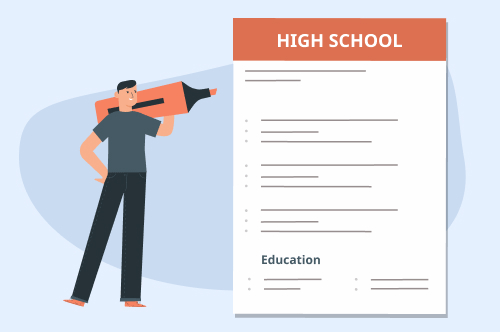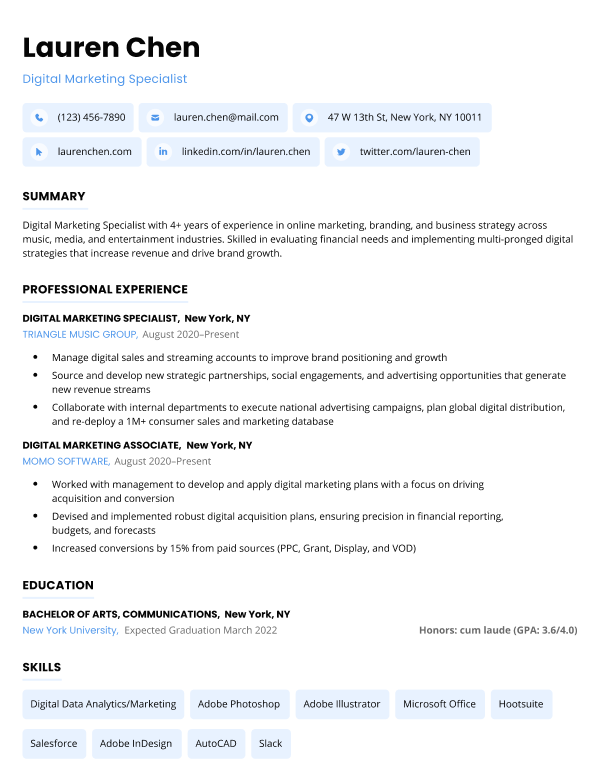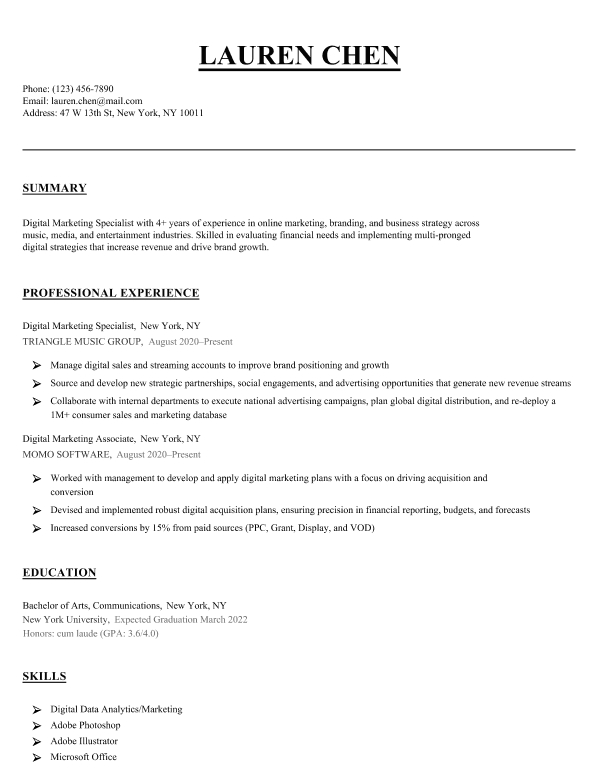High school is an important time in anyone’s life, but employers don’t always need to see it listed on your resume.
Employers have a limited amount of time to spend on each application, so you want to make sure that when you write a resume, you focus on your most relevant skills and experience.
Keep reading to learn how to put your high school diploma on your resume, and when it’s better to leave it off.
Our free-to-use resume builder can make you a resume in as little as 5 minutes. Just pick the template you want, and our software will format everything for you.
Should you put your high school diploma on your resume?
Yes, you should put your high school diploma on your resume if it’s your highest level of education.
However, there are many situations where you should leave your high school off your resume.
To find out when to put your high school diploma on your resume, and how, check out our video where our career expert Eva tells you exactly how to write your education section:
Here’s how to determine whether adding your high school education will improve your chances of getting invited for an interview:
When to include high school education on your resume
Many jobs, even entry-level positions, require you to have at least a high school diploma, especially if you don’t have any relevant work experience.
By highlighting your high school on your resume, you show hiring managers that you meet the education requirements of the position.
You should include your high school education on your resume if:
- High school is your highest degree of education
- You’re currently in college
- You’re currently in high school
If you didn’t finish high school, list the name of your school and the years you attended.
When to take high school off your resume
While listing high school education on your resume is the right option in some situations, it’s not always necessary.
You should take your high school education off your resume in these situations:
- You’ve graduated college
- You have several years of work experience
- There’s no space left on your resume
If it’s been a few years since you graduated high school, you’ve likely gained some relevant education and work experience. Employers are much more interested in seeing these qualifications on your resume than your secondary education.
If you’re worried about not being able to fill up your resume if you remove your high school education, you can include volunteer work, extracurricular activities and internships.
How to list high school education on a resume
Now that you know you want to include your high school on your resume, here’s how to do it properly:
Use the correct format
If you already have some work experience, your high school diploma will be less important in employers’ eyes than your professional achievements.
This means you should format your resume so that your high school diploma is placed lower on the page and comes after any higher education you have.
Here’s an example of a resume education section written by a sophomore in college:
By listing their college education first and their high school diploma second, they draw attention to their most recent educational experience, which is what’s most relevant to employers.

The best resume templates for 2024
One of the best ways to make your resume is by filling out one of our free resume templates. All our templates are designed by experts and free to download for Microsoft Word or Google Docs.
Include your GPA
If you’re applying for your first teen job or the job description specifically mentions it, include your high school GPA when you write your education section.
If you have a high GPA, it could help set you apart from other candidates with a similar educational background.
Here’s an example of how to include your GPA on your resume:

Keep in mind however that you should only add your GPA if you think it’ll give you a competitive edge over other applicants. If your GPA is lower than 3.5, it’s better to leave it off.
Mention relevant coursework
Whether you’re trying to land a teen summer job or you’re writing a resume with no experience, mentioning classes or school projects relevant to the position you’re applying for can help convince employers that you’ve got the necessary skills and knowledge to succeed in the role.
For example, if you’re trying to land a job as a photographer assistant and you took a photography class in school, you should mention it on your resume.
Below is a good example of how to list relevant coursework in your resume’s education section:

Then, spotlight the skills you picked up during your high school classes in the skills section of your resume, like in this example:

If these skills are a basic requirement of the role, include them in your resume objective as well.
Highlight awards and accomplishments
Putting awards and other accomplishments from your time in high school on your resume shows that you’re someone who works hard to reach your goals.
The following are a few examples of achievements to highlight on your resume:
- Academic awards
- Honor roll
- Leadership roles
- Student government positions
Place your academic achievements in your education section or in a separate section on your resume, like in this example:

List your accomplishments in chronological order and remember to include a date for each achievement.
Click to rate this article
4.6 Average rating

















